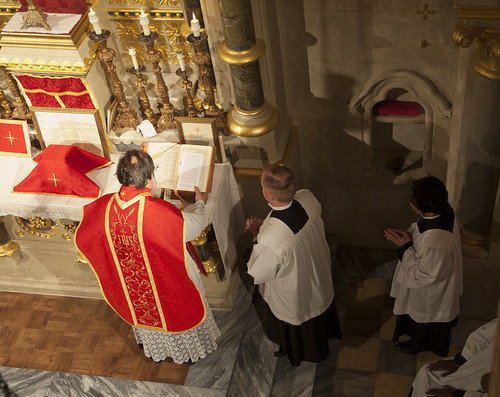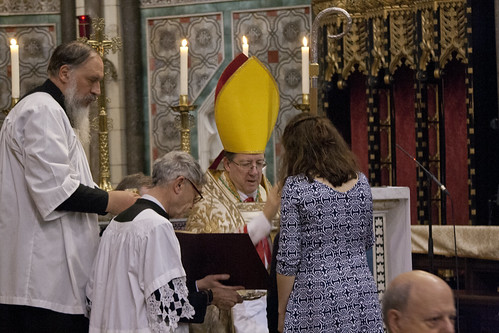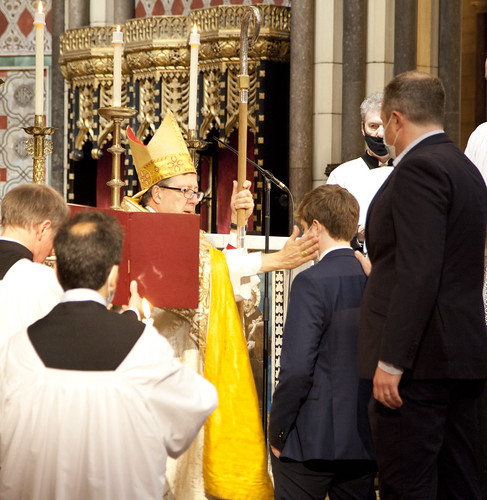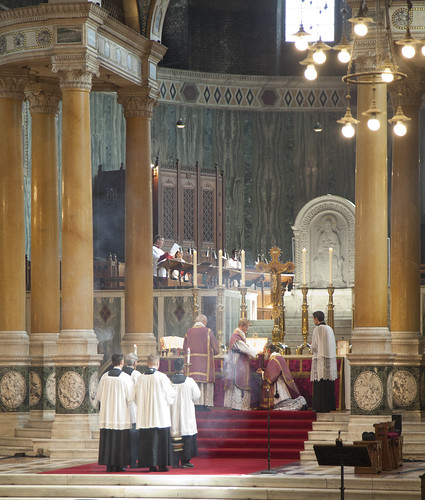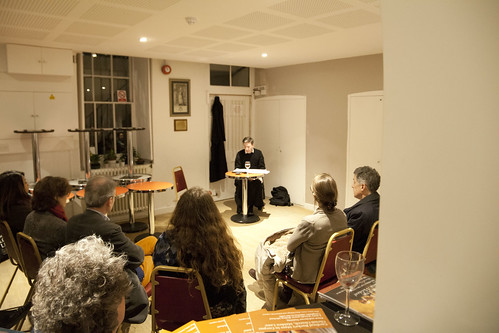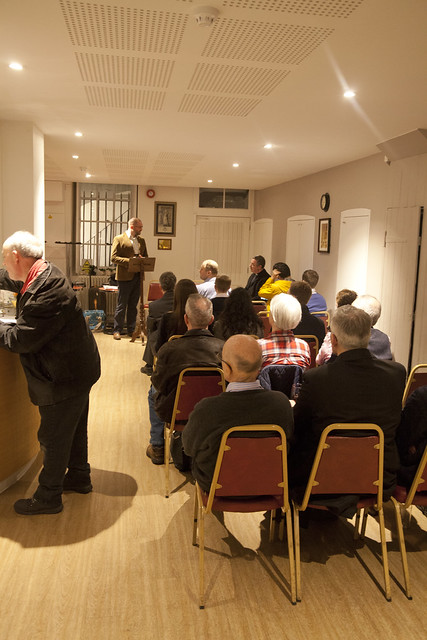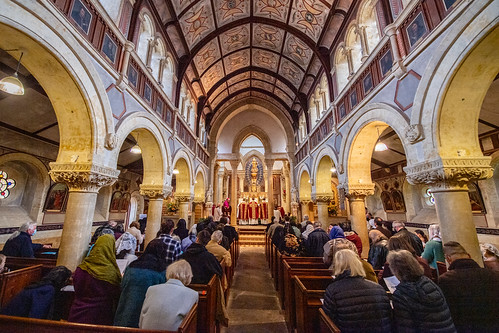 |
I can't find an image of Houghton-Brown online,
but he was an artist and this is by him:
Richeldis founding the Holy House at Walsingham. |
The long-lost autobiography of Fr Bryan Houghton is being
republished by Angelico Press. It contains a description of a famous meeting, which Fr Houghton attended himself, between the Chairman of the Latin Mass Society, Geoffrey Houghton-Brown, the President of Una Voce International, Eric de Saventhem, and some others, with Archbishop Lefebvre, in 1969. At this meeting it was agreed that Latin Mass Society/ Una Voce groups should stick to seeking permissions for the Traditional Mass from bishops and the Holy See, while the Archbishop, and the fledgling SSPX which he founded, could continue to act as he saw fit, with or without permission. (Fr Houghton was a cousin of Houghton-Brown, incidentally.)
From Unwanted Priest, p141
I may say that this was not the first time that I met Monsignor Lefebvre. I had already met him (perhaps in the summer of 1969) at the Kenworthy-Browns. There had been present: Mr and Mrs Kenworthy-Brown, Monsignor Lefebvre, Mr and Mrs de Saventhem, Mr Geoffrey Houghton-Brown, Mr Vernor Miles (representing the Countess of Kinnoull) and myself. Monsignor’s lack of English was a bit of a bore, but luckily the de Saventhems, Geoffrey and I were fluent in French, and the Kenworthy-Browns understood most of it, although a bit tongue-tied. But poor Vernor Miles was still at school-French: “My aunt’s pen: la plume de ma tante.” This was perhaps rather fortunate—divine Providence. Monsignor Lefebvre wanted money to start up in England in a big way. Now, Vernor Miles represented Lady Kinnoull, who had one of the biggest Catholic fortunes in England. It had been left to her by her husband and she was childless. At the crucial moment Mr Vernor Miles was unable to understand.
Anyway, the problem was: whether the Latin Mass Society should associate itself with Lefebvre or not? It was decided that the two organisations should remain divided: the LMS trying to get the hierarchy to admit the old Mass; Lefebvre producing the old Mass in spite of the hierarchy. I felt quite sure that this was the right decision.
With hindsight the wisdom of the decision may seem evident, but of course in 1969 the SSPX had not been suppressed (1975), and the Archbishop had not been excommunicated (1988). Neither side knew how the situation of the other would develop, what threats and opportunities it would face. In 1971 the LMS won the first great concession from the Holy See, the English Indult, under which it gained the thankless task of seeking permissions for celebrations of the ancient Mass. A world-wide version followed in 1984. These document rather defined the task of the Una Voce movement up to 2007, and it seems we are back to that situation again today. On the other hand, the SSPX gained complete freedom of action at the cost of canonical regularity.
Whether the Archbishop and his followers were justified in doing what they did I leave to readers to judge. What is perfectly clear is that it would not have helped the situation if the Una Voce movement had stopped trying to get permissions from bishops and popes. Insofar as we have been successful, we have carried on the same battle, the battle for the Traditional Mass and the Faith it embodies, as the SSPX, from another direction. Insofar as we have failed, we--or rather, the bishops and popes at issue--have provided the SSPX with evidence that their disobedience was necessary.
This has been true throughout our history, and it certainly has not ceased to be true today.

